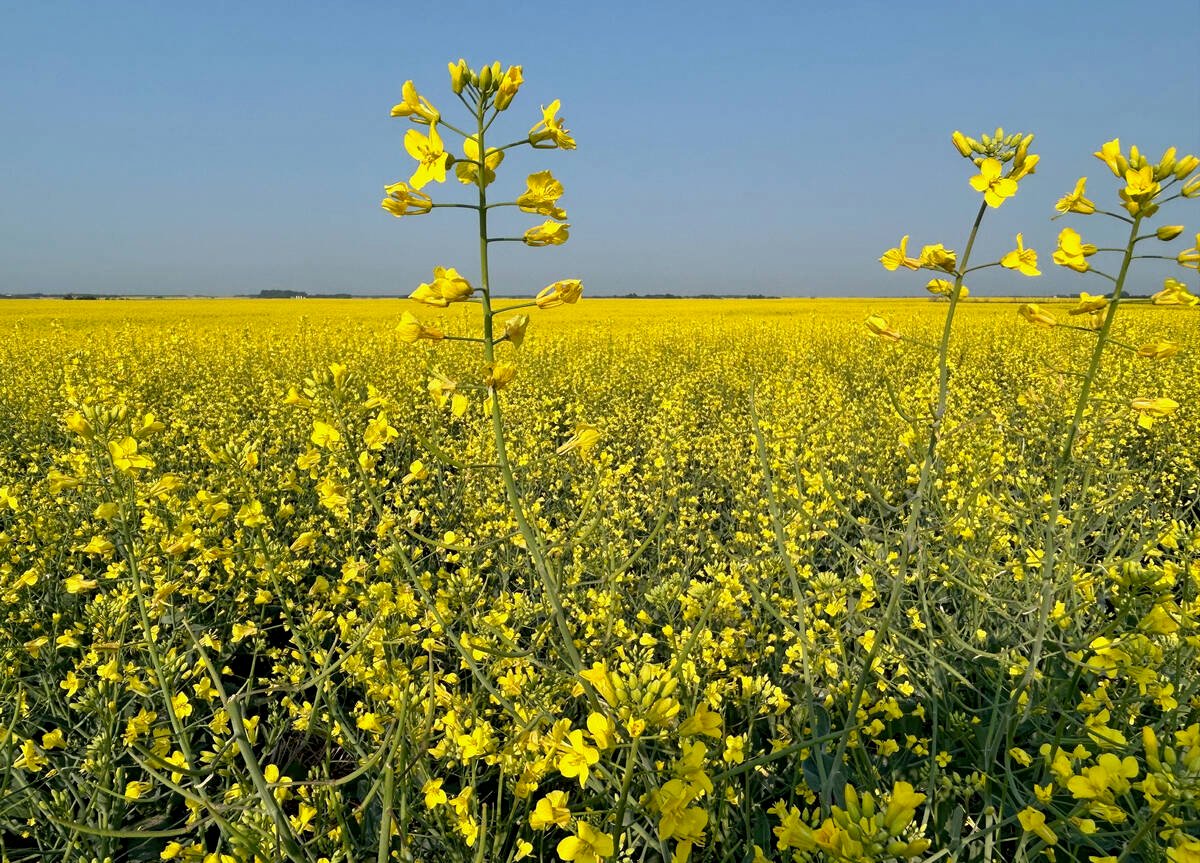British Columbia agriculture minister John van Dongen says despite the best efforts of Canada’s politicians and beef industry, Canadian cattle are unlikely to cross the American border in the coming weeks and there remains only “a small window of opportunity that they will cross before the (U.S. federal election) in November.”
Van Dongen told reporters July 22 that the optimism that supported prices for last year’s calf crop isn’t there this year.
He said U.S. agriculture secretary Ann Veneman’s comments in August 2003 about a science-based solution to the closed border buoyed prices for the 2003 fall calf run.
Read Also

Record canola harvest expected
Anecdotal reports from agronomists, crop production advisors, landowners and grain industry reps, combined with provincial reports, indicates that canola yields could break the yield record set in 2016
As a result, he said he expects prices will be poor for 2004 calves that will enter the market in mid-September.
Parts of British Columbia have been hit with drought again this year and van Dongen said a lack of water, pasture and hay to overwinter record numbers of cattle will tax resources and producers.
“I cannot encourage strongly enough, producers need to access the support programs that are available to them,” he said.”All producers need to be in CAIS (Canadian Agricultural Income Stabilization).”
He said the cull cow and bull problem is worse than ever and governments and the industry have discussed various methods to control inventories, including a humane slaughter program.
However, that idea “is way down on the list.”
Increased demand for Canadian beef from Mexico and the United States means “we can now ship all the beef we can process.”
Van Dongen said proposals to test all cattle for BSE as a way of opening markets are missing the point.
“We can sell all we can slaughter now and likely all we could. Testing (for BSE) isn’t cost effective and isn’t good science and would only add costs to a product when the demand for untested meat is already there.”
















